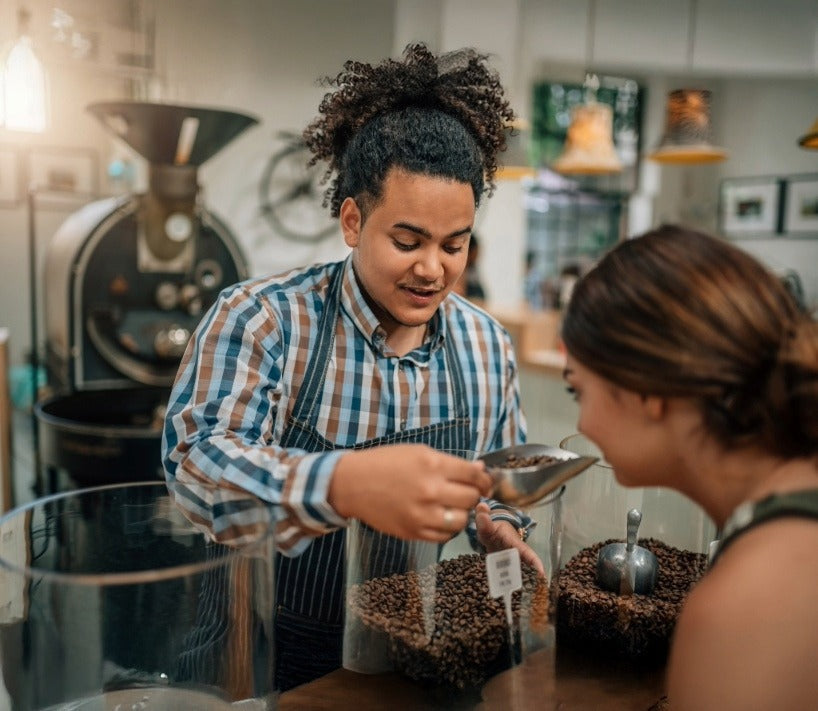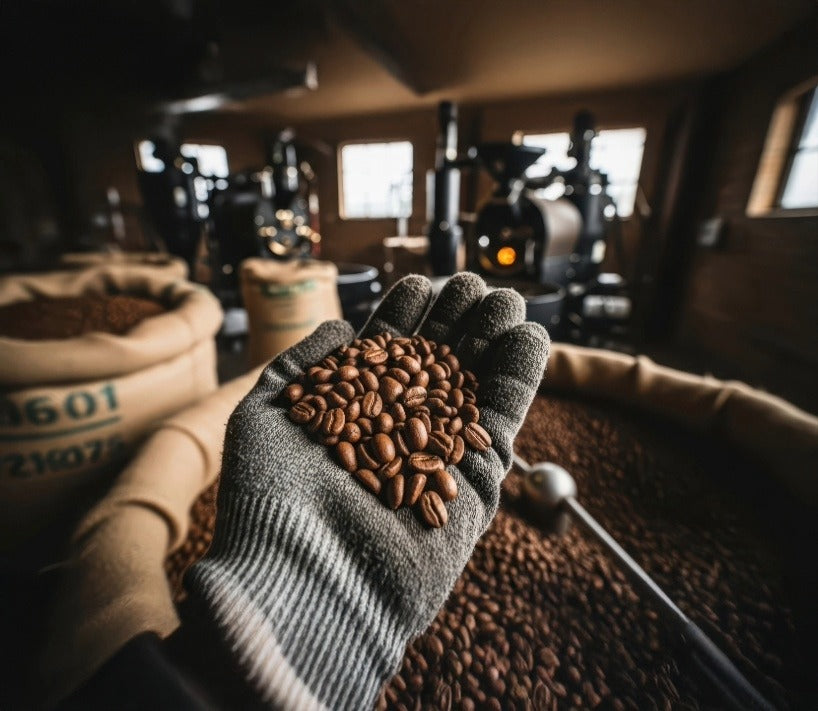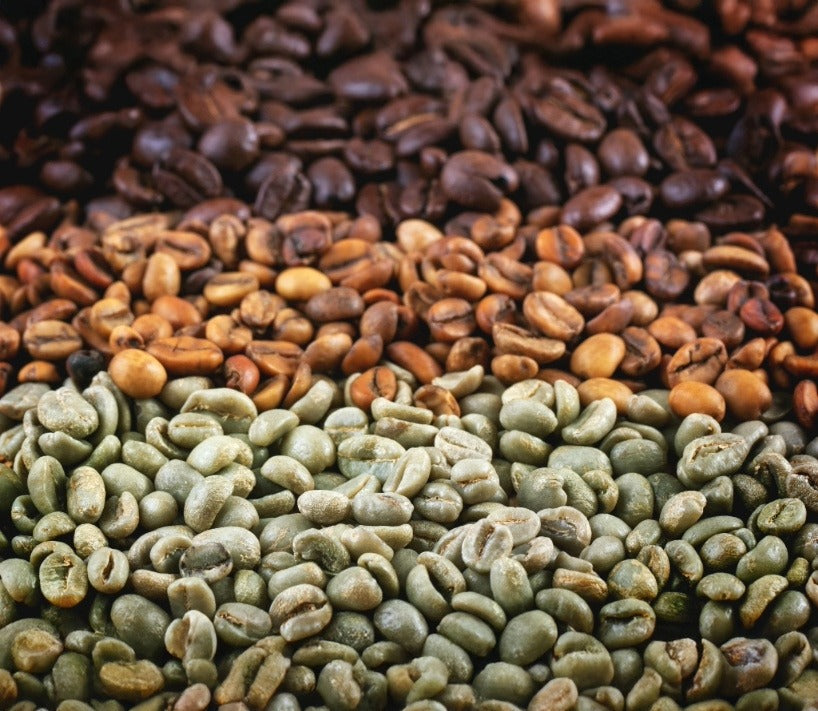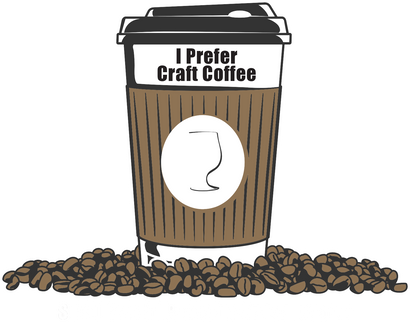Best Coffee at Home: Stop Wasting Your Money on Discount Beans
June 21, 2025 4 min read
Best Coffee at Home: Stop Wasting Your Money on Discount Beans
“Wait, Are You Drinking Grandpa Beans?!”
Ever popped open a bag of “bargain” coffee and wondered why the taste screams cardboard and regret? You’re not alone. I’ve been there—elbow-deep in a clearance bin, thinking I’d hacked the system. Spoiler: the only thing I hacked was my taste buds. Those discount beans were roasted months (sometimes years) ago, sat unloved on a warehouse shelf, and only left the building once the markdown sticker made them look irresistible. If your goal is truly the best coffee at home, stale beans are a one-way ticket to Bitter-Town, population: you.
The (Unfiltered) Truth About Discount Coffee
1. Why Discount Beans Get Marked Down
-
Overstock & Slow Movers – Retailers ordered too much and want shelf space back.
-
Aging Inventory – Coffee doesn’t have nine lives; flavor peaks around 7–30 days post-roast. After that, it’s downhill faster than me on a kayak.
-
Marketing Mirage – Flashy sales distract from the fact the beans are—brace yourself—old.
2. Freshness: The Invisible Ingredient
-
Flavor Volatility: Aromatic compounds degrade within weeks. Older coffee loses brightness, complexity, and any sense of fun.
-
Degassing Dynamics: CO₂ escapes gradually after roasting. By month three, those beans are as flat as yesterday’s seltzer.
-
Oil Oxidation: Rancid “top notes” deliver that burnt-popcorn fragrance you never asked for.
3. Commodity vs Craft: A Tale of Two Beans
Below is a quick side-by-side to keep handy next time you’re tempted by a markdown label.
| Feature | Discount Grocery Beans | Fresh, High-Scoring Air-Roasted Beans | Pre-Ground Tin “Classic” |
|---|---|---|---|
| Typical Roast-to-Shelf Lag | 3–18 months | 24 hours or less | >1 year |
| SCA Score Range | 60–79 (if we’re lucky) | 80+ (specialty grade) | <60 |
| Flavor Notes | “Burnt tire,” “wet cardboard” | Peach, honey, dark chocolate | “Nostalgia,” “dust” |
| Degassing Window | Long gone | Actively releasing CO₂ (ideal) | Non-existent |
| Brewing Result | Bitter, flat | Sweet, complex, balanced | ??, mostly bitter |
| Price per 12 oz bag | $6–$12 | $14–$22 | $5–$8 |
| True Cost per Cup* | $0.60 (half down the drain) | $0.75 (no waste) | $0.55 (but why?) |
*Assumes 12 g dose, 350 ml brew, and that nobody finishes bitter coffee without milk, sugar, and tears.
4. Air-Roasting: The Flavor Fast Track
Traditional drum roasting can create hot spots and uneven development (think cookies that are raw inside but charred on the edges). Air-roasting suspends beans in a stream of hot air, roasting each bean evenly like a mini hovercraft. Benefits:
-
Cleaner Flavor – No burnt chaff sticking to beans.
-
Shorter Roast Curve – Bright acidity preserved.
-
Consistency – Each batch hits the target profile dead-on, every time.
5. How “Best Coffee at Home” Became My Daily Quest
I used to grab anything on sale. One brew tasted like over-steeped broccoli water (yes, really). The turning point? A blind tasting where fresh, top specialty coffee online obliterated a discount bag that bragged about “rich flavor.” Fresh won by a landslide—like, 9-to-0, landslide.
How You Can Unlock Magical Morning Coffee
Step 1: Know Your Roast Date
Ignore expiration dates; look for a roast date (the earlier, the better). If there isn’t one, consider it a red flag bigger than a gas-station burrito.
Step 2: Choose High-Scoring Beans (80+ SCA)
SCA scores are like college GPAs—but for coffee. Anything 80+ qualifies as specialty. That’s where you’ll find the best craft coffee at home and flavors that make Monday feel like Friday.
Step 3: Embrace Small-Batch, Air-Roasted Sources
Small-batch roasters (hi, it’s me!) roast to order, maximizing freshness. Air-roasted beans highlight sweetness and clarity, giving you flavor fireworks without the char.
Step 4: Store Smart
Keep beans in a cool, opaque container with a one-way valve. Skip the fridge; moisture is the enemy. And please, for the love of crema, don’t freeze your daily stash unless you’re storing long-term.
Step 5: Brew Like a Pro (Even Pre-Coffee)
-
Grind Right Before Brewing – Oxygen is a flavor thief.
-
Dial Your Ratio – Start with 1:16 (i.e., 20 g coffee to 320 g water).
-
Mind Your Water – Use filtered, 195–205 °F water.
-
Adjust & Taste – Your palate is the best measuring tool.
Need a Hand?
Confused? Shoot me a message. I’ll personally walk you through roast dates, flavor notes, or why your Aeropress looks like a sci-fi prop. My inbox is your hotline to best coffee online free shipping resources, brewing tips, or dad jokes (no extra charge).
FAQs
1. Why are discount beans so cheap?
Retailers need to move stagnant inventory. Many “deals” hide beans roasted months ago—flavor and aroma long gone.
2. How long are beans “fresh”?
Peak flavor generally lands 7–30 days after roast, declining sharply after 45 days. Proper storage can stretch that window, but not by much.
3. Is air-roasted really better?
Air-roasting provides even heat distribution, preventing scorching and retaining nuanced flavors. Think of it like convection baking versus sticking your cookies under a broiler.
4. Do I really need to grind immediately before brewing?
Yup. Pre-ground coffee oxidizes in hours, not days. Grinding on demand keeps volatile compounds where they belong—your cup.
5. What’s the difference between “craft,” “specialty,” and “premium” labels?
“Specialty” refers to 80+ SCA-scored beans. “Craft” is loosely used but often indicates small-batch roasting. “Premium” is pure marketing jargon; read the fine print.
Parting Sip
Remember, the best coffee to buy online isn’t necessarily the cheapest. It’s the coffee that respects your palate and your wallet in the long run. Skip the markdown beans, treat yourself to the freshest craft coffee online, and savor mornings worthy of a slow-motion sunrise montage.
Still unsure which direction to paddle? Reach out—I’m here, mug in hand, ready to point you toward your very own magical morning cup.
Quick Tips:
-
Discount beans are discounted because they’re old.
-
Fresh, air-roasted, high-scoring beans equal better flavor and value.
-
Check roast dates, store smart, and grind on demand.
-
Have questions? I’m just a message away.
Also in Best Coffee To Buy Online Education

Small Roaster Coffee Beans USA: Why Supporting Local Roasters Matters
January 06, 2026 3 min read
Learn why buying from small batch coffee roasters online in the USA delivers fresher coffee, better flavor, and stronger local impact. Order coffee online from a roaster you trust. It's the only way to get the best tasting craft coffee at home.

Worst Coffee To Buy At Home (And What To Buy Instead)
January 05, 2026 3 min read
The best craft coffee to drink at home starts with fresh, high-scoring small batch specialty coffee online. Costume coffee is just commercial coffee marketed to look like specialty coffee. It's game I won't play.

Order Freshly Roasted Coffee Beans Online (And Take Control of Flavor)
January 04, 2026 3 min read
Order freshly roasted coffee beans online and control flavor at home. Get better coffee with fresh roasted coffee beans online.
